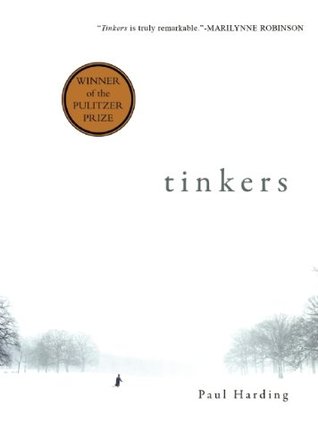More on this book
Community
Kindle Notes & Highlights
George Crosby remembered many things as he died, but in an order he could not control. To look at his life, to take the stock he always imagined a man would at his end, was to witness a shifting mass, the tiles of a mosaic spinning, swirling, reportraying, always in recognizable swaths of colors, familiar elements, molecular units, intimate currents, but also independent now of his will, showing him a different self every time he tried to make an assessment.
As he lay on his deathbed, George wanted to see his father again. He wanted to imagine his father. Each time he tried to concentrate and go back, tried to burrow deep and far away from the present, a pain, a noise, someone rolling him from side to side to change his sheets, the toxins leaking from his cancer-clogged kidneys into his thickening and darkening blood, reeled him back to his worn-out body and scrambled mind.
When his grandchildren had been little, they had asked if they could hide inside the clock. Now he wanted to gather them and open himself up and hide them among his ribs and faintly ticking heart. When he realized that the silence by which he had been confused was that of all of his clocks having been allowed to wind down, he understood that he was going to die in the bed where he lay.
As he smoked, he listened to the voices in the rapids. They murmured about a place somewhere deep in the woods where a set of bones lay on a bed of moss, above which a troop of mournful flies had kept vigil the previous autumn until the frosts came and they, too, had succumbed.
Your cold mornings are filled with the heartache about the fact that although we are not at ease in this world, it is all we have, that it is ours but that it is full of strife, so that all we can call our own is strife; but even that is better than nothing at all, isn’t it?
ossuary. The man would take that as true and base his ideas of the
Everything is made to perish; the wonder of anything at all is that it has not already done so. No, he thought. The wonder of anything is that it was made in the first place. What persists beyond this cataclysm of making and unmaking?
because I am not going back to my family—my wife, my children—because my wife’s silence is not the forbearance of decent, stern people who fear You; it is the quiet of outrage, of bitterness. It is the quiet of biding time. God forgive me. I am leaving.
His despair had not come from the fact that he was a fool; he knew he was a fool. His despair came from the fact that his wife saw him as a fool, as a useless tinker, a copier of bad verse from two-penny religious magazines, an epileptic, and could find no reason to turn her head and see him as something better.
When I walked through the Gaspars’ corn patch, I imagined breaking an ear from its stalk, peeling its husk, and finding my father’s teeth lining the cob. They were clean and white, but worn like his. Strands of my father’s hair encased the teeth instead of corn silk.


